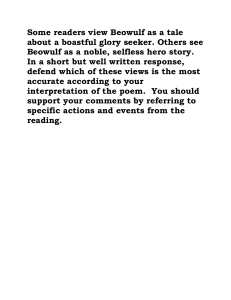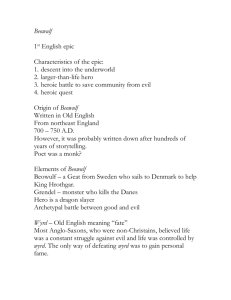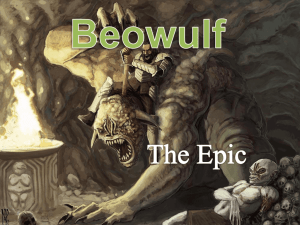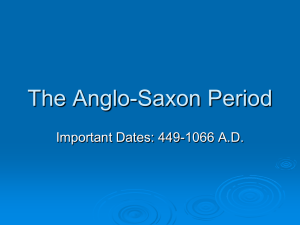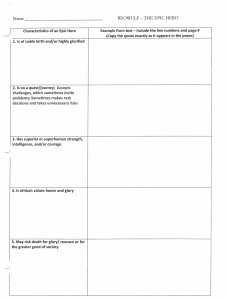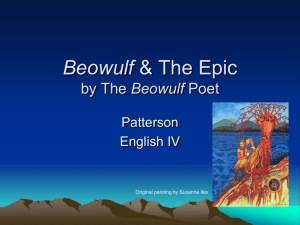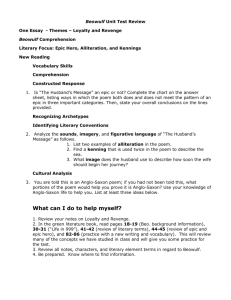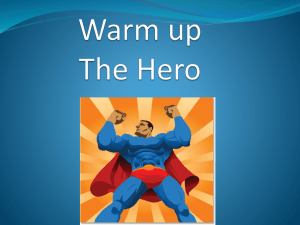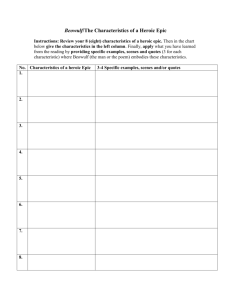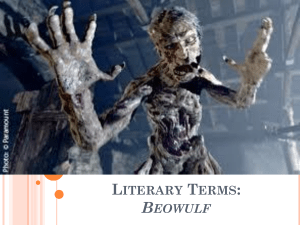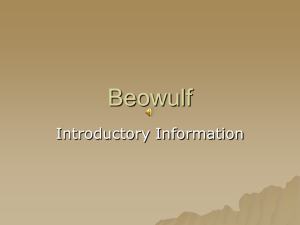Beowulf Study Guide 1
advertisement
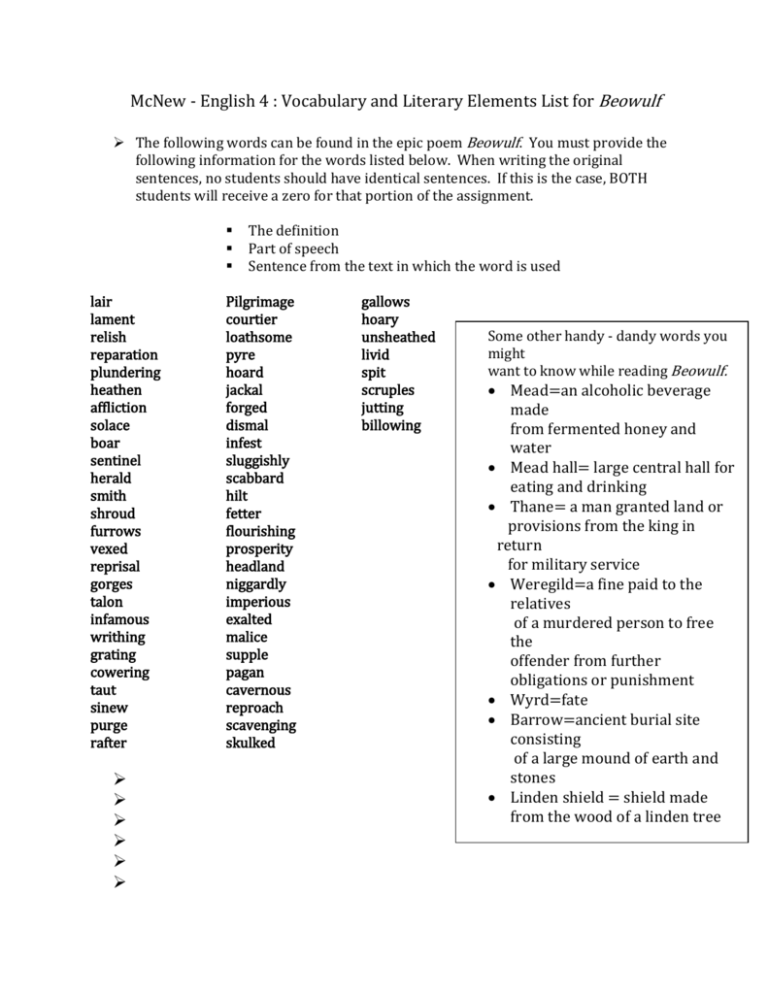
McNew - English 4 : Vocabulary and Literary Elements List for Beowulf The following words can be found in the epic poem Beowulf. You must provide the following information for the words listed below. When writing the original sentences, no students should have identical sentences. If this is the case, BOTH students will receive a zero for that portion of the assignment. lair lament relish reparation plundering heathen affliction solace boar sentinel herald smith shroud furrows vexed reprisal gorges talon infamous writhing grating cowering taut sinew purge rafter The definition Part of speech Sentence from the text in which the word is used Pilgrimage courtier loathsome pyre hoard jackal forged dismal infest sluggishly scabbard hilt fetter flourishing prosperity headland niggardly imperious exalted malice supple pagan cavernous reproach scavenging skulked gallows hoary unsheathed livid spit scruples jutting billowing Some other handy - dandy words you might want to know while reading Beowulf. Mead=an alcoholic beverage made from fermented honey and water Mead hall= large central hall for eating and drinking Thane= a man granted land or provisions from the king in return for military service Weregild=a fine paid to the relatives of a murdered person to free the offender from further obligations or punishment Wyrd=fate Barrow=ancient burial site consisting of a large mound of earth and stones Linden shield = shield made from the wood of a linden tree The following terms are literary elements found in Beowulf. In your notebook, you will form a “t” chart. On the left, you will put the term itself. On the right, you will put TWO examples in the form of a quotation directly from the text. Comitatus= commitment of warriors to their leader; bond between them Archetype= the perfect model or example Alliteration=repetition of initial consonant sounds Assonance=repetition of vowel sounds Caesura (versification) =pause usually near the middle of a line of verse Consonance=repetition of consonant sounds Compounding = the combination of two words to make a new word Foil=someone or something that serves as a contrast to another Kenning= a poetic substitute for a noun, used repeatedly as a memory device Evidence of the following themes Fortitude and wisdom = Physical bravery was most appreciated when accompanied by understanding and discernment. Glory and treasure = The original audience for the epic wanted glory, immortality of good frame, to remain alive in human memory across time and space. Glory is usually connected with heroism in battle or with generosity. Treasure was the outward manifestation of glory. Wyrd and Providence = Providence is the will of God moving in the affairs of men. There is a plan and meaning behind what happens. Wyrd is assumed to be a blind force which predetermines the outcome of everything. Loyalty, Vengeance, and Feud = In Anglo-Saxon society order was maintained by the concept that all free men had a duty to see justice done. Feuds were often the result of tit-for-tat vengeance. Evil and Monsters = In addition to literal monsters, evil is located within man himself throughout the epic. Evidence of the epic characteristics Hero is a person of high social status and often of great historical or l legendary importance Hero’s actions determine the fate of many people Hero performs courageous and sometimes superhuman deeds that reflect values of the time Plot includes supernatural beings and events Setting has a large scale, often involving a long and dangerous journey through more than one nation Hero delivers long, formal speeches Poem uses formal diction, a serious tone, and poetic language Poem deals with universal themes such as good and evil or life and death
